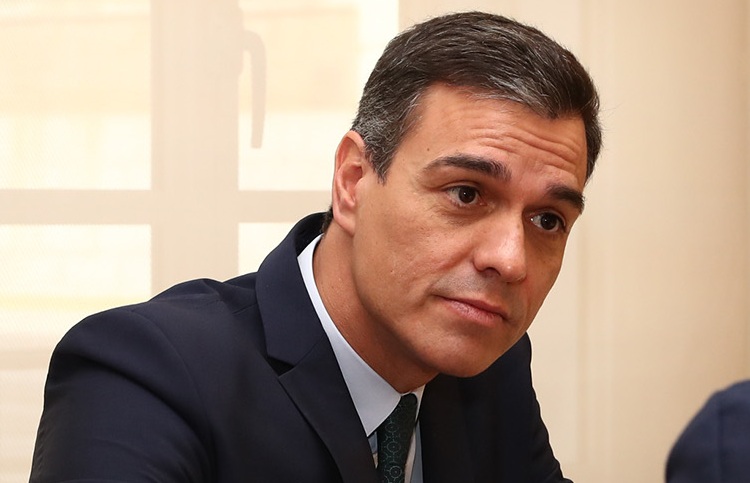Ángel Collado
The President of the Government, Pedro Sánchez, is going on holiday after another image offensive, between the Cabinet crisis and the subsequent self-promotion, but without approving any of the main reforms and laws announced for this year.
The lack of support in Parliament and of agreements with the social partners have led Sánchez to postpone until September the setting of the new sustainability factor for the pension system, changes in labour legislation and the law on intervention in the housing market.
After the failure in the regional elections in Madrid and the pardoning of the pro-independence leaders convicted of sedition and embezzlement, Pedro Sánchez tried to regain the initiative with the changes of face in the Executive and the advance of good news on the progress of the vaccines that did not serve to prevent the fifth wave of the coronavirus.
The attacks on the opposition for blocking the renewal of the constitutional bodies go hand in hand with the lack of agreement within the coalition government itself on its pending issues, all of which are economic.
The Minister of Social Security, José Luis Escrivá, was left alone in the attempts to achieve a real reform of the pension system, and as soon as July began he limited himself to presenting a text with minor adjustments endorsed by the business organisations and trade unions, which was used by Pedro Sánchez to organise a signing ceremony and pose at the Palacio de la Moncloa.
Escrivá acknowledged that the basic problem and the commitment made with Brussels had not been touched: the formula for guaranteeing pensions for Spaniards beyond the next elections. He even came clean when he explained that citizens born between the late 1950s and the mid-1970s have to think about working more or receiving less money. The study and agreement on this new “sustainability factor” has already been postponed until the last quarter of the year.
The labour reform has been almost equally stuck since the beginning of the legislature, with an open confrontation between the vice-president and minister of Economy, Nadia Calviño, and the minister of Labour, Yolanda Díaz. While waiting for Sánchez to opt for the positions of one or the other, the pacts with Podemos force him to modify legislation that has been approved by Brussels since 2012 and contributed to the recovery of employment after the previous economic crisis.
Employers are also refusing to agree to any measure that would mean a reversal in the flexibility of hiring or an increase in wage costs. The employers’ association CEOE describes the measures proposed by Díaz as “Marxist”.
The far-left formation demands that the commitment to repeal the law be fulfilled before the end of the year, which also includes the classic demand of the trade unions to regain power by means of the prevalence of sectoral agreements over those of the companies. The two sectors of the government have left the internal discussions until after the summer, as well as the attempts at rapprochement with the employers and the unions.
The changes in Sánchez’s Cabinet have not even served to push forward the housing law, another point of the pact between the PSOE and the podemites. The replacement of José Luis Ábalos in the Ministry of Transport by Raquel Sánchez has left things as they were. The socialist minister defends that the administrations can freeze rental prices in “stressed” areas, but admitting increases of 10 percent in new contracts; while Podemos, represented in the matter by the minister Ione Belarra, insists on intervening directly in the setting of prices in order to lower them.
The two parties in the coalition government have been locked in their respective positions for five months now, with no agreement for the moment other than to continue negotiating the housing law after the summer. Sánchez has changed ministers, but has yet to decide anything concrete when he has to settle internal confrontations over economic policy. He gave in to Podemos and overruled Carmen Calvo in her clash with Irene Montero over the leading role in the feminist laws, and now he has left the rest of the fights, those of Calviño, Díaz, Belarra and Escrivá, until September.







